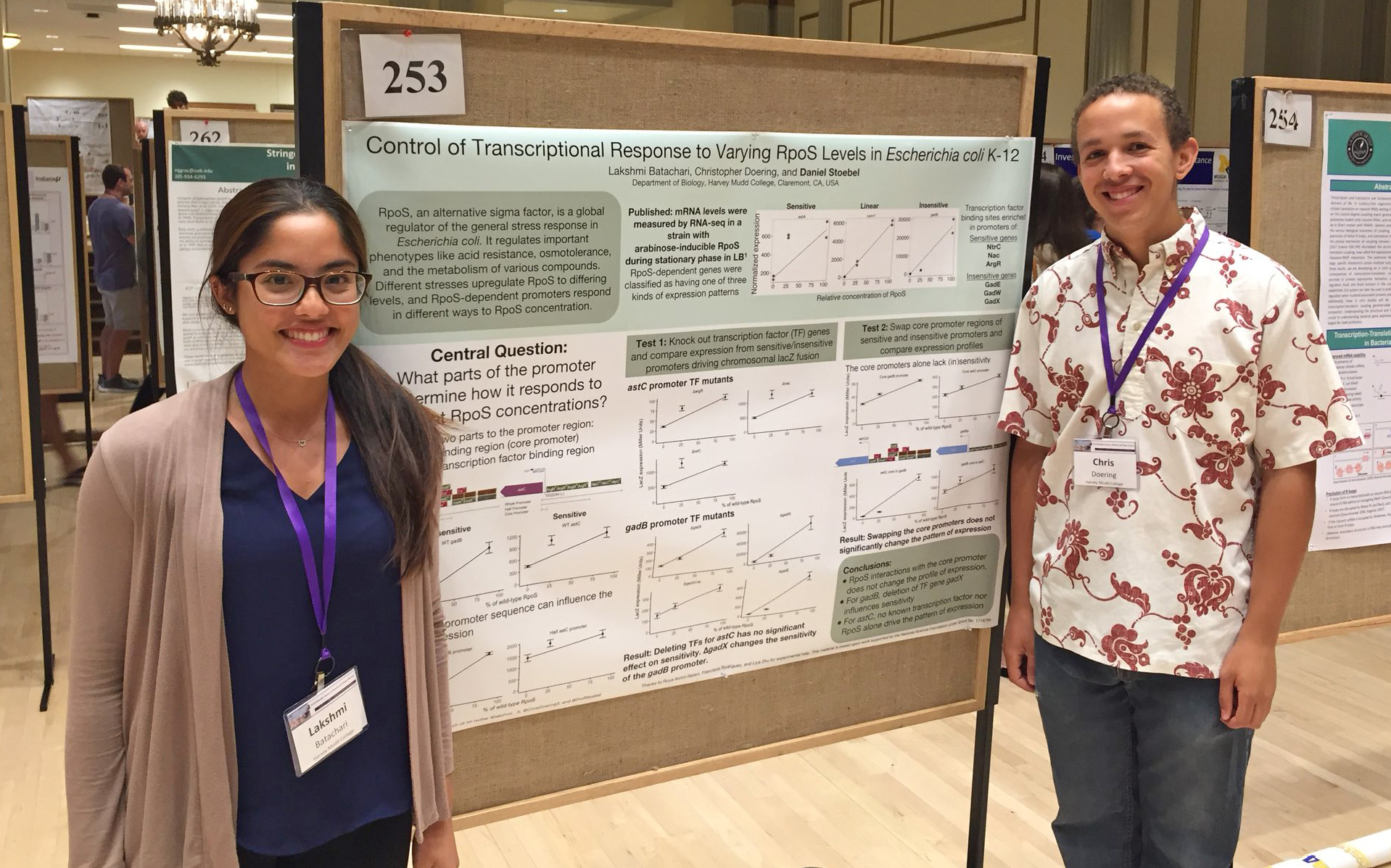Harvey Mudd Chem-Bio Majors Earn Best Poster Award
August 17, 2018
When microbiologists from around the world gathered this month for the Molecular Genetics of Bacteria and Phages meeting, they were joined by two Harvey Mudd College students whose research was so impressive it earned them a Best Undergraduate Poster award.
At the longest-running series of molecular biology meetings, joint chemistry and biology majors Lakshmi Batachari ’18 and Chris Doering ’19 presented results of their yearlong study on how gene expression in E. coli unfolds under stress conditions.
Doering, whose academic interests include molecular genetics, synthetic biology and microbiology, explains their work:
“In E. coli, stress response is largely controlled by the transcription factor RpoS, a protein responsible for turning on gene expression,” he says. “Depending on the type of stress, E. coli will activate RpoS, and subsequently gene expression, to differing degrees. Our research looked into how genes respond to RpoS, what patterns of expression we see and what causes those patterns to occur. Previous work in the lab showed that some genes respond very quickly to just a small amount of RpoS (sensitive response) while others required large amounts to get any expression (insensitive response). Our work found that other transcription factors working with RpoS are responsible for the different types of response and in a few cases we identified the exact culprit.”
Batachari, who now works as a lab technician at University of California, San Diego and intends to pursue a PhD in microbiology or a related field, and Doering, who has similar PhD plans, were advised by Daniel Stoebel, associate professor of biology. Batachari and Stoebel are among the authors included on a paper published last year in the Journal of Bacteriology. That paper, “Genome-Wide Transcriptional Response to Varying RpoS Levels in Escherichia coli K-12,” was the culmination of research begun in the Stoebel Lab in 2010.
Students in the Stoebel Lab are on a quest to understand the consequences for the cell when some genes look one way and others look another way, and how to understand why genes are expressed in one way or another. The E. coli global transcription regulator RpoS is the focus of work, because it allows for the integration of molecular biology, physiology and evolution. Projects include studying how RpoS levels vary across strains and environments, measuring the affect of this variation in RpoS level on the transcriptome, studying how RpoS interacts with other transcription factors to influence patterns of transcription, and exploring how the regulation of RpoS levels varies in pathogenic relatives of laboratory E. coli.
